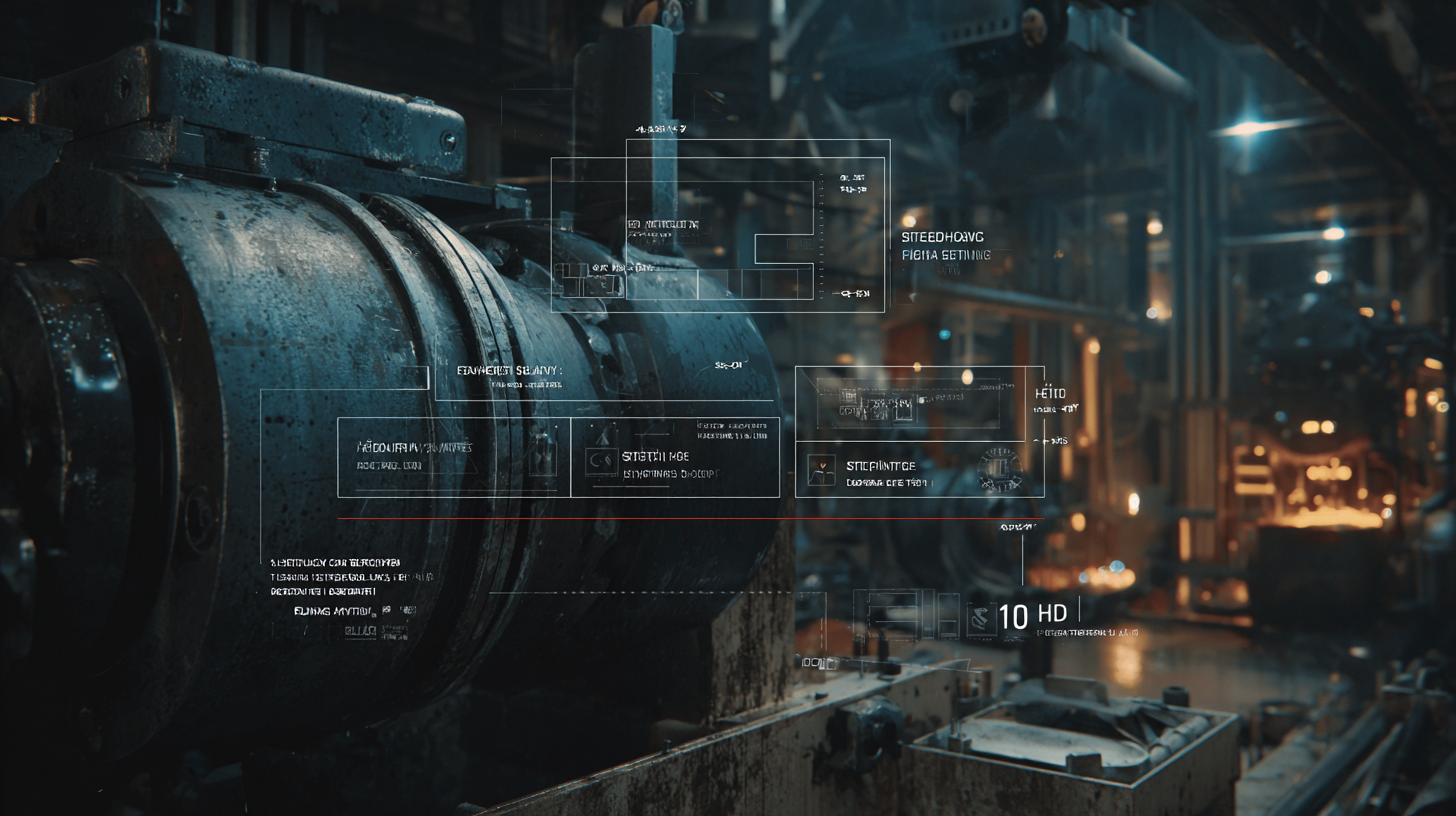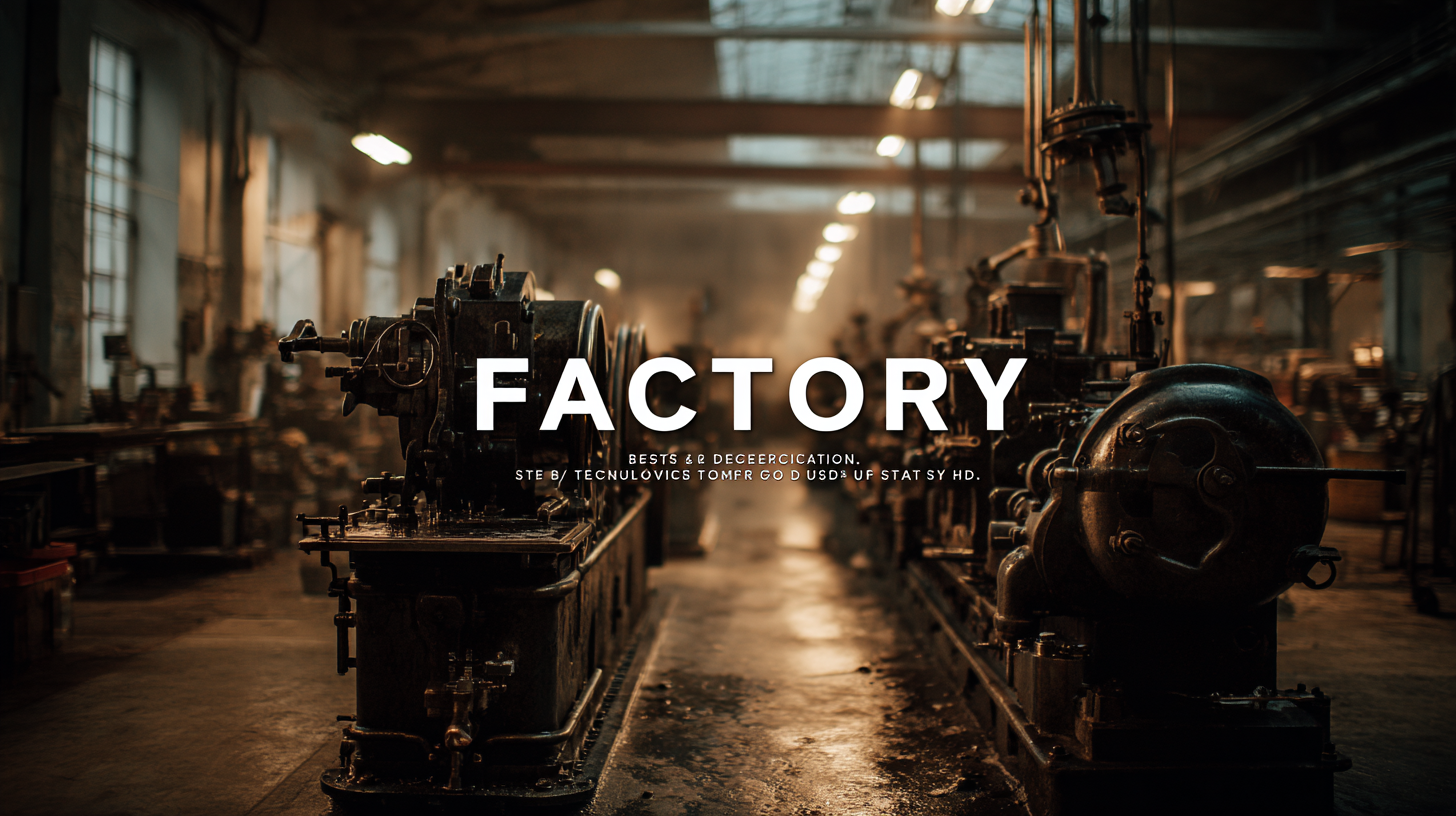


In today's competitive industrial landscape, selecting the right manufacturer is crucial for achieving optimal precision and efficiency in production processes. The quality of factory technical specifications can significantly impact product performance, durability, and overall success in the market.

This blog aims to provide a comprehensive guide for businesses seeking to unlock precision through the best factory choices available. By exploring key criteria for evaluating manufacturers, including their technical capabilities and adherence to industry standards, we will equip you with the knowledge necessary to make informed decisions.
Additionally, we will delve into step-by-step strategies for collaborating effectively with chosen factories, ensuring that you harness their full potential. Join us on this journey to discover how to choose a high-quality manufacturer and elevate your operations to the next level.
When diving into the manufacturing realm, understanding import and export certifications is essential for ensuring compliance and optimizing operational efficiency. These certifications serve as a safeguard for both producers and consumers, establishing trust and transparency in global trade. By adhering to various certification requirements, manufacturers can guarantee that their products meet international standards, thereby reducing the risk of costly delays and rejections at borders.
The process of obtaining these certifications often involves rigorous documentation and adherence to specific guidelines outlined by regulatory agencies. This includes everything from quality control measures to environmental compliance standards. Moreover, knowing the nuances of each market’s requirements can be a game-changer. Manufacturers should invest time in familiarizing themselves with the pertinent certification bodies relevant to their target markets, as this knowledge not only streamlines the import and export process but also enhances the company’s reputation on a global scale. By prioritizing these certifications, manufacturers position themselves for success in an increasingly competitive marketplace.
In the era of Industry 4.0, the integration of digital specifications has emerged as a cornerstone for modern factories. These specifications provide a framework that not only enhances the precision of manufacturing processes but also facilitates seamless communication between machines and systems. By utilizing digital specifications, manufacturers can significantly reduce errors, streamline operations, and ultimately foster a culture of continuous improvement.

As organizations increasingly adopt emerging technologies, the role of digital specifications becomes even more critical. With advancements such as the Internet of Things and artificial intelligence, the ability to harness big data is revolutionizing decision-making in intelligent manufacturing. This digital transformation empowers factories to respond swiftly to market changes and optimize resource allocation, thus paving the way for smarter, more efficient production environments. In this context, leveraging best practices in technical specifications is essential for companies looking to thrive in a competitive landscape.
In today’s competitive manufacturing landscape, optimizing factory technical specifications is crucial for enhancing efficiency and precision. A comprehensive step-by-step guide can help organizations streamline their production processes. Research from the International Journal of Advanced Manufacturing Technology indicates that factories implementing precise technical specifications can see productivity increases of up to 20% while reducing waste by an average of 15%. This optimization not only leads to better quality products but also maximizes resource utilization.
To begin, the first step is to assess the current technical specifications against industry standards. Utilizing data analytics can identify areas of improvement, enabling manufacturers to align their processes with the best practices identified in industry reports. According to a study by the McKinsey Global Institute, companies that analyze their operational data can achieve a reduction in costs by up to 30%. Thus, regular review and adjustment of technical specifications based on empirical data ensures continuous improvement and adaptability in a rapidly evolving market. By following this structured approach, manufacturers can effectively unlock the full potential of their operations.
 When striving for maximum efficiency in manufacturing processes, understanding the different types of technical specifications is crucial. Technical specifications serve as the foundation for the machinery and equipment utilized in factories, providing essential guidelines that ensure precision and reliability. Among these, detailed drawings, equipment performance standards, and material specifications stand out as key components. Detailed drawings help in visualizing the product requirements, while performance standards outline the operational benchmarks that machines should achieve. This alignment not only enhances production quality but also minimizes the risk of errors during fabrication.
When striving for maximum efficiency in manufacturing processes, understanding the different types of technical specifications is crucial. Technical specifications serve as the foundation for the machinery and equipment utilized in factories, providing essential guidelines that ensure precision and reliability. Among these, detailed drawings, equipment performance standards, and material specifications stand out as key components. Detailed drawings help in visualizing the product requirements, while performance standards outline the operational benchmarks that machines should achieve. This alignment not only enhances production quality but also minimizes the risk of errors during fabrication.
In addition to drawings and performance standards, material specifications are vital in selecting the right raw materials for production. The choice of materials directly affects the durability and functionality of the final product. By evaluating these specifications, manufacturers can make informed decisions, optimizing both the efficiency of their processes and the quality of their output. Incorporating a systematic approach to assess and implement these technical specifications empowers factories to operate with heightened precision, ultimately leading to improved productivity and a stronger competitive edge in the market.
In today's competitive manufacturing landscape, precision strategies are essential for optimizing factory operations. Implementing such strategies can significantly enhance efficiency and quality, leading to increased profitability. According to a report by McKinsey, factories that adopt advanced precision techniques can improve operational efficiency by up to 30%. This is primarily achieved through data-driven decision-making and the integration of Internet of Things (IoT) technologies, which allow real-time monitoring of machinery and processes.
Moreover, integrating precision into factory workflows can reduce waste and enhance product quality. A study by the National Institute of Standards and Technology (NIST) indicates that precision in production can lead to a 20% decrease in production errors and a substantial reduction in rework costs. Factories employing precision manufacturing techniques are better equipped to meet customer demands and adapt quickly to market changes, thus securing a competitive edge. By focusing on precision strategies in their operations, manufacturers position themselves to thrive in an increasingly data-driven world.